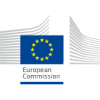Revolutionizing Textile Sorting with AI-powered Disintegration
1 year agoBuilding on its expertise in data science, management research, and sustainability, MagIC proposes a multi-pronged approach to address the challenges outlined in the call and contribute to the following expected outcomes:
1. Systemic Solutions for Textile Sorting with AI-powered Disintegration:
- Leverage Data Science, particularly AI and Machine Learning, to develop automated systems for identifying and separating non-textile components like buttons, zippers and trims.
- Collaborate with partners to design a digital information system using Blockchain technology to track the composition and disassembly needs of textile products throughout the value chain.
2. Improved Textile Recycling Technologies:
- Apply Data Science to optimize existing mechanical recycling processes to improve the yield and quality of recycled textile fibers.
- Advocate for policies that incentivize the use of recycled content in textiles utilizing Public Policy research and communication.
3. Sustainable Life Cycle Management:
- Utilize Life Cycle Assessment (LCA) methodologies to quantify the environmental benefits of MagIC's proposed solutions compared to traditional textile sorting and recycling practices.
- Develop innovative solutions for the treatment and reuse of side streams generated during the recycling process.
- Employ Public Policy research to develop recommendations for policies that promote sustainable value chain approaches
4. Knowledge Sharing and Collaboration:
- Utilize Information Systems research to develop a platform for knowledge sharing and collaboration among stakeholders in the circular textile economy.
- Conduct research on successful circular business models in other sectors and adapt those learnings to the textile sector using Management research methods.
- Develop training materials for workers in the circular textile economy using MagIC's expertise in data-driven skills gap analysis.
Construction Technology
Digital Agenda for Europe
Digital Economy
Innovation & Research
Blockchain
Artificial Intelligence
Defence & Cybersecurity
Get Access to the 1st Network for European Cooperation
Log In
or
Create an account
to see this content
Recommended Calls for This Idea
Calls proposed by users that could work with this Idea.
recommend a call


Please Log In to See This Section